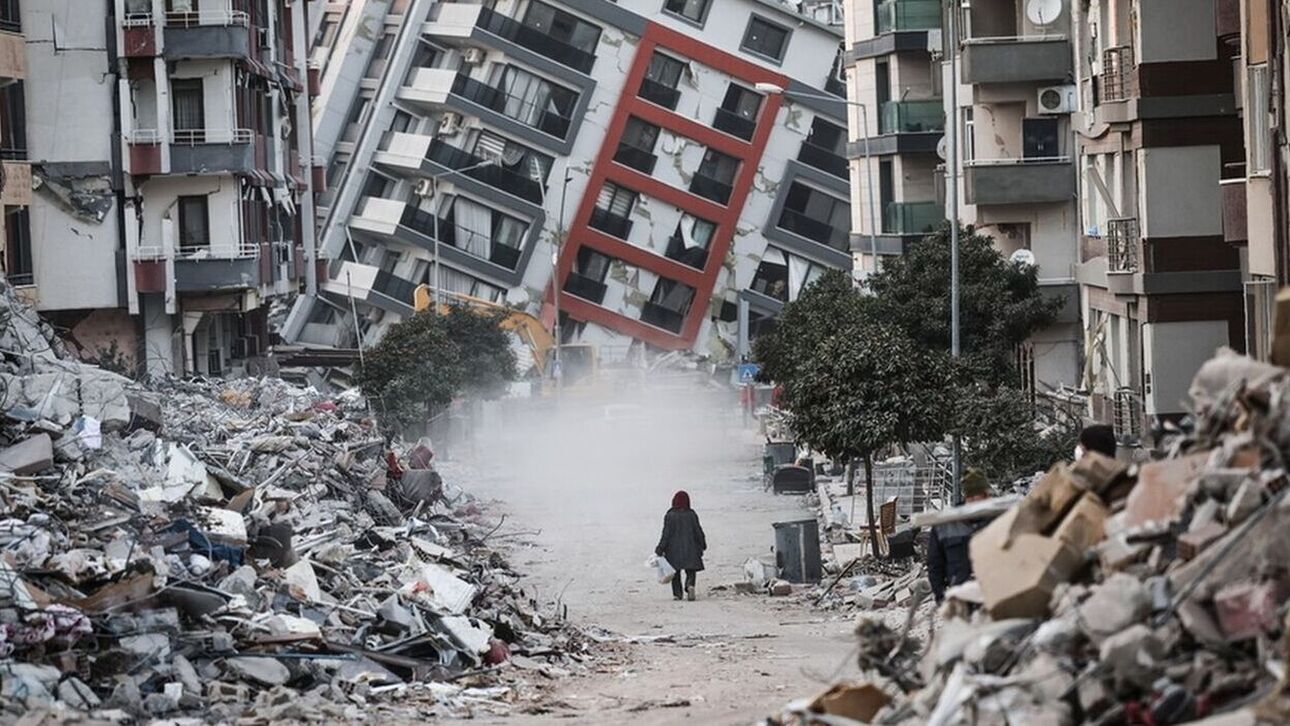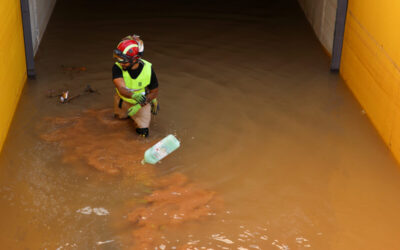The six contracts for the third Axis (Axis 3) of the “National Microsatellite Program,” between the European Space Agency (ESA) and…

The immediate health needs following the earthquakes in Turkey and Syria are mainly related to injuries and disruption of health care.
However, infectious disease threats may be a concern over the next two to four weeks, the European Center for Disease Prevention and Control (ECDC) said in a statement.
A wave of cholera cases in the affected areas is a significant possibility in the coming weeks, ECDC notes. Cholera is a concern in war-torn northwest Syria, where authorities have reported thousands of cases as the country tries to control an outbreak since September 2022. A planned vaccination campaign that was interrupted by the earthquakes must be accelerated, it is pointed out.
ΕCDC notes that food- and water-borne diseases, respiratory infections, and vaccine-preventable infections are a risk in the coming season, with the potential to cause outbreaks, especially as survivors move into temporary shelters.
Damaged utility infrastructure, leading to limited access to clean water, inadequate sanitation, inadequate refrigeration, and cooking systems, may increase the occurrence and transmission of food- and water-borne diseases.
In addition, other food- or water-borne diseases can cause viral infections in camps, such as hepatitis A, norovirus, and rotavirus, infections caused by parasites or bacterial infections. The availability of clean water and food-related control are among the top measures to prevent the spread of these diseases.
Also read: Earthquake in Turkey | Aid from Cyprus finally accepted – Countries sending aid
ECDC also highlights that respiratory infections are a particular concern, especially in cold weather, and the risk of outbreaks increases as survivors are moved to temporary settlements, where overcrowding cannot be avoided.
COVID-19, seasonal influenza, and other respiratory viruses circulate at moderate to high levels in the region. The very young and the elderly are more vulnerable to complications from these infections and outbreaks will put additional strain on already damaged healthcare systems.
Similar to viral respiratory infections, crowded conditions in temporary settlements can increase the risk of transmission of vaccine-preventable diseases such as measles, chickenpox, meningitis, or polio.
Rescuers are at increased risk of tetanus from injuries and open wounds caused by contact with the debris. Tetanus prophylaxis should be offered according to existing national guidelines.
Finally, ECDC states that the establishment of health surveillance systems by public health personnel will facilitate early warning and detection of outbreaks. International organizations plan to deploy mobile laboratories in the affected areas and may also provide expert assistance to the two affected countries.
Source: CNN Greece
READ MORE
Von der Leyen | Proposal for the creation of a European Civil Defence Mechanism
The European Commission’s President Ursula von der Leyen called for the launch of a European Civil Defence Mechanism, speaking about…
Flooding in Spain | 7,500 soldiers on the streets
King Felipe VI and Prime Minister Pedro Sanchez are expected to visit southeastern Spain today, 3/11/2024, where unprecedented…
PwC Cyprus, Multimarine, SignalGeneriX, and Theophrastus Join Forces for the EDA’s Symbiosis Project
A leading Consortium comprising PwC Cyprus, Multimarine Services Ltd, SignalGeneriX Ltd, and Theophrastus Research Institute, has been…
MBDA – Matra Electronique | Joint creation of a centre of excellence for defence electronics in Europe
MBDA and its subsidiary Matra Electronique (MEL), which specialises in manufacturing high-precision electronic equipment, jointly…
THEON International | New orders amounting to €74 million having already exceeded €150 million in the 4th trimester
THEON INTERNATIONAL PLC (THEON) announced additional orders for the month of November. As a result of the…
UN | Iran has increased uranium enrichment to near weapons-grade levels
Iran has further increased its stockpile of uranium enriched to near weapons-grade levels, defying international pressure, according to…
Brazil | Arrests of military and police officers for plotting the assassination of President Lula
Brazilian police have arrested five officers accused of plotting a coup which included plans to overthrow the government following the…
Sweden | Leaflets with survival instructions in the midst of the Ukrainian crisis
Sweden started sending out five million leaflets to the country’s residents yesterday, urging them to prepare for a possible conflict…























